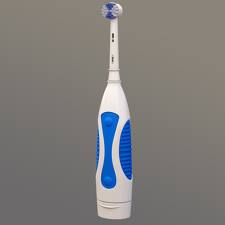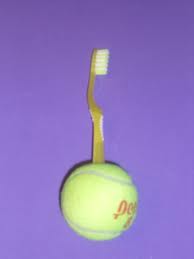What is a stroke?
A stroke, also called cerebrovascular accident (CVA), is a condition whereby the blood supply to the brain is blocked leading to lack of oxygen supply to the brain cells. Brain cells can die when the oxygen supply is cut off for even a few seconds. This leads to loss of function of parts of the body controlled by that region of the brain. If the right side of the brain is affected, the left part of the body will be affected and vice versa.
There are two types of stroke based on their etiology:
i) Ischemic stroke
This is the more common type of stroke, and is caused by blockage of the arterial blood supply to the brain, usually due to a blood clot.
ii) Hemorrhagic stroke
A hemorrhagic stroke is cause by an artery in the brain leaking blood or rupturing. The pooling of blood causes an increase in pressure causing the brain cells to die. This is why it is common for people with high blood pressure (hypertension) or aneurysms (balloon-like bulges present at certain sites of the artery of the brain that can stretch and burst) to experience stroke.
Stroke patients will need to be managed by a multidisciplinary team of health professionals, such as neurologists, physiotherapists, speech therapists, and sometimes even the dental team.
Effects of stroke on the oral cavity
1. Stroke patients vary in severity in terms of how much loss of function of parts of the body. However, these patients will generally experience physical weakness and lack of coordination, which leads to limited dexterity. This makes it difficult for the patient to carry out day-to-day routines that require fine movement such as brushing their teeth.
2. Stroke may also cause one of these symptoms in relation to the mouth:
-limitation of speech
-limitation of chewing and tongue movement causing food debris to collect around the oral cavity
-difficult to swallow (dysphagia)
3. Victims of stroke may also suffer from dry mouth (xerostomia), oral ulcers or stomatitis due to the medication taken for stroke.
4. In some stroke patients, particularly those who are bedridden and are not taking food from the mouth (but from IV drips), the tissues in the mouth becomes necrotic, that is to say, dies off. When there is necrotic tissues, flies can fly into their mouth if it is left open for a long period of time, leaving their eggs, and maggots start to grow. Although these maggots are actually doing the patient a favour by removing necrotic tissues, they should still be removed. If the caregivers notice maggots or necrosis of the oral tissues, they should inform a dental professional. These maggots can be ridden of by putting a gauze, dipped and damped with turpentine, in the oral cavity where the maggots are. The maggots are repelled by turpentine and will start crawling out of the mouth by themselves.
Oral healthcare for patients with stroke-tips for the care giver
Though oral hygiene may not seem to be critically important in the management of a patient with stroke, it is in fact something that should always be taken care of among others, especially in patients with severe stroke. Here are just some tips in maintaining the oral healthcare in stroke patients:
1. If the patient is suffering from limited dexterity as a result of the stroke, the toothbrush can be modified so that the patient can grasp the toothbrush better. Toothbrushes can be modified by fixing the end of the handle to something large such as a tennis ball, or a big lump made from cement (plaster of paris). The length of the toothbrush may also be increased by using wood such as tongue depressors, or plastics, such as a ruler. Otherwise, an electric toothbrush could prove useful in such scenarios.
2. If the care giver has to brush the teeth of the stroke patient, it is probably advisable not to use toothpaste, as the patient may have difficulty with rinsing the mouth after the care giver is done brushing. In this case, just wet the toothbrush with tap water and begin brushing. A dash of baking soda may also be used in addition to just tap water.
3. Stroke patients affect mostly the elderly, and this population are more often than not partially or completely edentulous and wearing dentures. If this is the case, care for the denture is also important. The care giver should ensure that the dentures are left out at night, and brushed with toothpaste and toothbrush. If the patient is able to brush the dentures by himself, similarly the handle of the brush can be modified to enable better grasp.



Hi I’m Evelyn Muñoz I’m not sure what to do. My grandma had a very severe hemmorgaic stroke 2 months ago and she hasn’t been able to close her mouth for about the entire 2 months bc she had a PEG since she has left side paralysis and facial/throat dysphasia. From the very first days after the stroke I remember when I first saw her mouth when they removed her dentures she had a very clean healthy mouth. I never knew how important oral care was until now and I’m so so angry the nurses and doctors never bothered to tell us how important it really is if not I would’ve been advocating for them to consistently clean it while in their care. I feel so bad because my grandma has had so much build in her mouth that when they remove it all it makes her bleed and causes a lot of trauma. She now has constant large pieces shedding and has a lot of oral damage and huge scabbing. I am devasted that I didn’t do my research prior. I would think the doctors and nurses would be more informed. I also noticed that whenever they clean her mouth many nurses do it very aggressively and rough even after my pleas to be gentle. Not sure if that’s normal or common? This is all so new to me and I want to make my poor grandma as comfortable as possible.